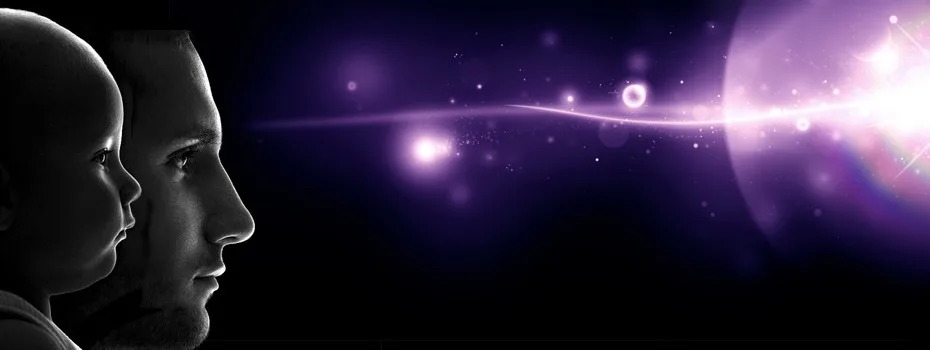
Strategies of Being a Great Leader, Teacher, Learner, and Communicator
The purpose of the “Strategies of Being” component of the Education for Life Program is to outline the mindset and methodology of exceptional leaders, teachers, communicators, speakers, and coaches as a template for empowering and positive interaction between people. The page is divided into the following sections:
- What is This
- Why Create This
- Ways to Contribute
- Strategies of Being Overview and Summary
- Summary
- FAQ
- Resources
RELATED PAGES (mouse-over for descriptions and click for complete pages)
EDUCATION OVERVIEW | HOW TO USE THIS COMPONENT | OUR OPEN SOURCE PURPOSE
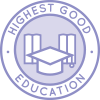
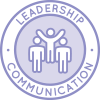
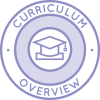
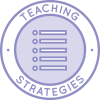
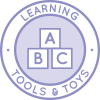
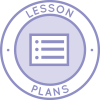
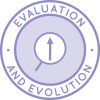
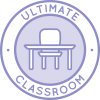

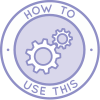
WHAT IS THIS
 This strategies of being a great leader, teacher, learner, and communicator section (“Strategies of Being”) is a list of the most effective strategies we’ve found for improving the learning, teaching, and application of information. The ideas offered here have been chosen because we consider them representative of empowering and positive mindsets and approaches to living and sharing personal growth. In accordance with our Highest Good of All philosophy, these ideas are not considered the way, but rather a way that, for us, supports the Education for Life program and the values and intent of One Community to be a place of loving growth and contribution.
This strategies of being a great leader, teacher, learner, and communicator section (“Strategies of Being”) is a list of the most effective strategies we’ve found for improving the learning, teaching, and application of information. The ideas offered here have been chosen because we consider them representative of empowering and positive mindsets and approaches to living and sharing personal growth. In accordance with our Highest Good of All philosophy, these ideas are not considered the way, but rather a way that, for us, supports the Education for Life program and the values and intent of One Community to be a place of loving growth and contribution.
WHY CREATE THIS
 One Community feels a culture of personal growth and constant learning and improving ourselves is a part of living, creating, and sharing for The Highest Good of All. The Strategies of Being component of the Education for Life Program functions as an outline of the mindsets and methodologies of exceptional leaders, teachers, communicators, speakers, and coaches that support people achieving their goals, living the life they want, and helping each other better ourselves.
One Community feels a culture of personal growth and constant learning and improving ourselves is a part of living, creating, and sharing for The Highest Good of All. The Strategies of Being component of the Education for Life Program functions as an outline of the mindsets and methodologies of exceptional leaders, teachers, communicators, speakers, and coaches that support people achieving their goals, living the life they want, and helping each other better ourselves.
Our goal in sharing and using these strategies is to provide a tool for improving the learning and application process for everyone who participates. It considers everyone a Learner as well as a Teacher and seeks to improve both the Teacher-to-Learner collaborative growth process as well as the Learner-to-Teacher growth process. By helping people to work together more effectively through these strategies, our hope is that we help everyone involved grow and improve faster as individuals, as a team, and as a culture.
WAYS TO CONTRIBUTE TO EVOLVING THIS EDUCATION PROGRAM WITH US
SUGGESTIONS | CONSULTING | MEMBERSHIP | OTHER OPTIONS
STRATEGIES OF BEING OVERVIEW

 To create this page we combined the ideas of inspirational leaders (Eckhart Tolle, Neale Donald Walsch, Anthony Robbins, Miguel Ruiz, M. Scott Peck, and similar) with the transformational education systems we studied:
To create this page we combined the ideas of inspirational leaders (Eckhart Tolle, Neale Donald Walsch, Anthony Robbins, Miguel Ruiz, M. Scott Peck, and similar) with the transformational education systems we studied:
Montessori | Waldorf | Orff | Reggio | Multi-Intelligence | Bloom’s Taxonomy | Study Tech | I-WE
The “Strategies of Being” are divided into the following categories: Strategies of Encouraging Free-thinking and Leadership, Strategies of Expanded Perception and Creativity, Strategies of Demonstrating and Engaging Effective Communication, Strategies of Inspiration, Motivation, and Support, and Strategies of Modeling and Demonstrating. Below you will find the outline of what each category contains in bullet-point format. The links lead to the detailed definitions of each bulleted point found lower on this page.
Strategies of Encouraging Free-thinking and Leadership
- Ask “what would Love do?”
- Choose to lead with observation
- Everything you do should increase choices
- Use everything because everything is useful
- You are Whole and part of the Wholeness that is Everything
Strategies of Expanded Perception and Creativity
- Embrace feedback
- Every perspective is true for the individual
- Practice and share the gift of presence and The Now
- Remember you are always both a teacher and a student
- All people and all things share some form of relationship with each other; explore this
Strategies of Demonstrating and Engaging Effective Communication
- Everything is subjective and nothing is ever personal
- The meaning of the communication is the interpretation
- Be impeccable with your word and always use ownership language
Strategies of Inspiration, Motivation, and Support
- If it’s not fun, use a different approach
- Practice improving your emotional intelligence
- If you aren’t getting the results you want, ask better questions
- There should always be a “why” – do and teach everything with transparent intent
Strategies of Modeling and Demonstrating
- Imitate, explore, improvise, and compose
- Model who you want to be, even if you have to pretend
- Smile at your ego and help others to smile at theirs too
- Always do your best and always do your best to do what is for The Highest Good of All
Note: Maintaining a growth mindset is also foundational to the Education for Life Program. Please learn about it by visiting the Growth Strategies page that is part of Evaluation and Evolution component.
IDEAS TO ADD? CLICK HERE TO MAKE THIS PAGE BETTER
ENCOURAGING FREE-THINKING AND LEADERSHIP
Ask “What would Love do?”
In any situation, ask “what would Love do?” and then do that. Love is the essence of who we are and the purest expression or recognizing, feeling, and sharing our oneness and interconnectedness. As a Teacher, use the most challenging situations as the best opportunities to express warmth and care by asking “what would Love do?” As a Learner, make it a habit to feel and share your own Loving and how this affects everyone and everything around you. Function from this deeper core of your being and bring about even more of the love and light in yourself and others.

Choose to lead with observation
When we contemplate a flower, a crystal, a child, or even ourselves without mentally naming what we see, then these things remain windows of infinite possibility and wonder. Sensing both ourselves and the world without covering them up with words and labels is a profound gift. As a teacher, enjoy the enrichment of observing and provide direction when needed while allowing individuals to find their own solutions. As a learner, explore observing your existing patterns, strategies, and approaches. Embrace self-correcting as a path to responsibility, independence, and lasting growth.

Everything you do should increase choices
Everything we do should seek to create environments and skill sets that increase choices. Approach every situation with the intent to open more doors and create more opportunities for everyone around you with everything you do. As a teacher, embrace flexibility, versus conforming to a set standard and explain decisions and approaches within the context of how it increases choices. As a learner, seek understanding of how what you are learning will increase your choices. Engage an ongoing creative approach to collaborative skills of adaptation, creativity, and out-of-the-box thinking with the intent to maximize choices for everyone in all situations.
MONTESSORI – WALDORF – REGGIO – ROBBINS

Use everything because everything is useful
Embrace change and use all things, all experiences, and the entire Life Experience as a teacher. Every action we take, and every experience we live, is an expression of something, be conscious of this and how it is happening for your benefit. As a teacher, seek constant opportunity to integrate experiences into the learning process. As a learner, understand that all your experiences are happening to facilitate your life as a learning experience. Enjoy the journey because all experiences have something valuable to offer.
You are Whole and part of the Whole that is Everything
Every person is complete in their individuality and a part of the greater Whole that is Everything. We are both the drop and the ocean made up of drops. As a Teacher, see the goodness and perfection in everything and everyone around you. As a Learner, recognize that you already contain within you everything you need to succeed. Take joy in the reality that you are a unique and special part of an existence greater than the mind can even comprehend.
EXPANDED PERCEPTION AND CREATIVITY
Embrace feedback
If you tune your senses to it, every situation is giving you useful feedback; if you don’t think so, ask for feedback. As a Teacher, consciously seek feedback from your students about their experience of you as a teacher. As a Learner, seek feedback from everyone around you about how you can improve and learn even more. Feedback is the breakfast of champions, seek it.
Every perspective is true for the individual
Every perspective, no matter how wild it may seem to you, is true for the individual who holds that perspective. Awareness without labels is the key to differentiating between fact and opinion. As a Teacher, accept the realities of others as completely true (for them) and work to expand (rather than contradict) perspectives where appropriate. As a Learner, engage differing perspectives as an opportunity to “try on” these perspectives and enrich your own. Celebrate the differences between all perspectives without labels or judgements.
WALDORF – MULTI-INTELLIGENCE – BLOOM’S TAXONOMY – TOLLE – RUIZ – WALSCH
Practice and share the gift of presence and The Now
True presence is quieting the mind and focusing 100% of your attention on anything happening right Now. Focusing this way can be done with a person, a plant, an animal, or an object. As a Teacher, make it your practice to be 100% Present with your students and invite them to focus 100% on The Now and share how this affects their learning experience. As a Learner, practice experiencing your essential self as prior to any words, thoughts, mental labels, and images – just pure awareness and focus on the experience at hand. The past is past, and the future hasn’t happened yet, so every situation is an opportunity to focus all of your attention, without labels or conscious thoughts, on fullness of The Now.
REGGIO – MULTI-INTELLIGENCE – TOLLE – ROBBINS
Remember you are always both a teacher and a student
We are forever students and every thing, experience, and interaction in each of our lives has the potential to teach us something if we want to learn. As a Teacher, remember that every thing and every experience holds an opportunity for learning for both you and your students. As a Learner, remember that even a rock has something to teach. Embrace the opportunity to both learn and teach through integrated use of as many senses as possible: touching, moving, listening, seeing, smelling, tasting, and hearing (get creative!) and then turn all experiences into learning opportunities.
REGGIO – MULTI-INTELLIGENCE – TOLLE – WALSCH
All people and all things share some form of relationship with each other, explore this
We have a relationship of some sort with everything in our reality. What does this relationship mean? What is your relationship to the things you think you are least connected to? As a Teacher, open up dialogues to explore students’ different perceptions of relationships between all things. As a Learner, look for how anything you are learning relates to everything else. Broaden your concept of relationships to include all things and see how this enriches your perception and experience.
REGGIO – MULTI-INTELLIGENCE – TOLLE – WALSCH
DEMONSTRATING AND ENGAGING EFFECTIVE COMMUNICATION
Everything is subjective and nothing is ever personal
Life experiences are unique and so are the beliefs, values, and identity we create from these experiences. From this, everyone is doing the best that they can with how these experiences have shaped them and what they believe to be right. As both a Teacher and a Learner, recognize the goodness in all people and the subjectivity of all experiences. If you do this you will understand that everyone is doing what they feel is right and nothing is ever personal.
The meaning of the communication is the interpretation
Communication consists of what is said and what is heard. The meaning of any communication is not what is said, but rather what the other person interprets as the meaning of what was said. As a teacher, creatively check in (Formative Assessment) to see if what was said/taught was what was heard/understood by having the other person repeat it back, reword it, answer questions, or apply the knowledge. As a Learner, ask questions and make it a point to share what you think you heard to clarify if it is correct or not. Either party in any communication can ask to see what the other person heard and this will almost always lead to even better understanding for both people.
TOLLE – ROBBINS – WALDORF – STUDY TECH
Be impeccable with your word and always use ownership language
Be honest in every communication and always use ownership language. If you do not feel a person is ready for the truth, then tell them that. As both a Teacher and a Learner, practice your skills using ownership language and demonstrate to everyone you interact with that you are trustworthy through 100% honesty. This includes always following through on anything you say you are going to do. Imagine what the world would be like if we were A) always 100% honest and B) understood that people’s perceptions are always subjective and it is never personal (see above).
INSPIRATION, MOTIVATION, AND SUPPORT
If it’s not fun, use a different approach
We produce better results through PLAY. As a Teacher, get creative in making things fun and always follow learning theory with a practical task or tasks to train skills application. As a Learner, use your imagination and creativity to make any activity more fun. If it feels like “formal instruction,” it’s probably not fun enough.
Practice improving your emotional intelligence
Your emotional intelligence is your skill sets and strategies for dealing with emotional situations. Use the situations of life to practice and develop more and more effective approaches for dealing with life’s ups and downs, changing the way you react to things and how you feel inside about them. As a Teacher, help people to think about and use quality communication, self-talk, body posture, breathing, and other exercises to better access empowering emotional states and ways of dealing with difficult situations. As a Learner, practice keeping an awareness of your strategies and other people’s strategies to learn what works and doesn’t work. Remember, the most direct way to affect your external experience is to change how you feel inside.
If you aren’t getting the results you want, ask better questions
The questions we ask ourselves and others determine our focus. Is it on solutions or problems? Is it on what you want or what you don’t want? As a Teacher, seek to ask questions that focus people on what they want and how they can achieve it. As a Learner, become aware of the questions you ask yourself and others and practice improving these questions to get even better results. Sometimes simply asking “what question should I ask right now?” or “what would make this easier?” is all that is needed to open multiple doorways of opportunity.
There should always be a “why” – do and teach everything with transparent intent
Live with intent and share your intent transparently. Engage your identity, values, beliefs, and goals with conscious awareness and intent. As a Teacher, there should always be a “why” for everything taught – teach the “why” first. As a Learner, explore how what you are learning benefits your values, beliefs, and goals. A powerful “why” is often the most important component of any undertaking.
ORFF – BLOOM’S TAXONOMY – STUDY TECH
MODELING AND DEMONSTRATING
Imitate, explore, improvise, and compose
Teach with awareness of and through the following four stages: imitation, exploration, improvisation, and composition. As a Teacher, teach that people don’t fail, strategies fail. If something isn’t working, try something else. Engage the individual in the process of identifying what works and what doesn’t. As a Learner, imitate strategies that already work, explore new ways to apply these, improvise with your new toolset, and then compose and evolve from there. When both Teaching and Learning, make education direction decisions first and foremost upon efficacy.
BLOOM’S TAXONOMY – ORFF – MULTI-INTELLIGENCE – STUDY TECH – ROBBINS
Model who you want to be, even if you have to pretend
Model success for faster and better results. This applies to how we learn tasks as well as how we live life. As a Teacher, increase comprehension for yourself and others by first demonstrating all steps of a complex task, then have the person explain it to you in their own words, then have the person use visualization to practice the steps or sequence of a task before starting the activity. As a Learner, ask questions to clearly identify all the components of a strategy including what a person is saying to themselves, what a person is visualizing, how a person practiced, etc. Your brain doesn’t know the difference between pretending and reality so practicing by pretending is real practice.
ROBBINS – MULTI-INTELLIGENCE – BLOOM’S TAXONOMY – STUDY TECH
Smile at your ego and help others to smile at theirs too
See if you can catch, notice the voice in the head, perhaps in the very moment it complains about something, and recognize it for what it is: the voice of the ego, no more than a conditioned mind-pattern, a thought. Whenever you notice that voice, you will also realize that you are not the voice, but the one who is aware of it – in fact, you are the awareness that is aware of the voice. As a Teacher, overlook unconsciousness in others. This is not their true identity. By not reacting to the ego, you will often be able to bring out the True Self in others, which is the unconditioned consciousness as opposed to the conditioned. As a Learner, observe the ego in yourself and set yourself free from it by practicing non-resistance, non-judgement, and non-attachment. When you detect egoistic behavior in yourself, smile. At times you may even laugh. Look through the ego to your True Self that is in every human being as his or her essence.
Always do your best and always do your best to do what is for The Highest Good of All
Always do your best and always do what is for The Highest Good of All. As a Teacher, strive to have the greatest and most positive impact you can with every day of your life. As a Learner, always do the best that you can and in so doing be grateful for whatever result you get as the results of your best effort. With an awareness that you always have the ability to think and act to the best of your ability for The Highest Good of All, doing your best will always include doing what is for The Highest Good of All.

SUMMARY
 One Community feels a culture of personal growth and constant learning and improving ourselves is a part of living, creating, and sharing for The Highest Good of All. The Strategies of Being component of the Education for Life Program functions as an outline of the mindsets and methodologies of exceptional leaders, teachers, communicators, speakers, and coaches that support people achieving their goals, living the life they want, and helping each other better ourselves. By working together to use these strategies, we grow and improve faster as individuals, as a team, and as an organization.
One Community feels a culture of personal growth and constant learning and improving ourselves is a part of living, creating, and sharing for The Highest Good of All. The Strategies of Being component of the Education for Life Program functions as an outline of the mindsets and methodologies of exceptional leaders, teachers, communicators, speakers, and coaches that support people achieving their goals, living the life they want, and helping each other better ourselves. By working together to use these strategies, we grow and improve faster as individuals, as a team, and as an organization.
FREQUENTLY ANSWERED QUESTIONS
Q: How did you choose the authors you reference this information from?
The authors chosen as references for this information were selected based on their positive messages we found as individually empowering, advocating peace and loving of one another, and providing comprehensive representations of the much broader diversity of personal growth and self-improvement information available from many many other amazing authors too. The authors listed are by no means a comprehensive list in and of themselves and we feel their messages are widely expressed by other authors too.
Q: How did you choose the education programs you referenced this information from?
We researched all the most notable alternative education programs available. This research included Montessori, Waldorf, Orff, Reggio, Multi-Intelligence, Bloom’s Taxonomy, and Study Tech.
Q: This is a lot of information, how is a person supposed to use this page?
Take the bullet points that resonate with you and apply them. The top part of the page is meant to be an overview and single-sentence “reminder” list and the rest of the page contains the details of what this means.
Q: How does One Community apply the information on this page?
One Community uses the information on this page to help each other grow and be the best that we can be for each other. In support of this we hold monthly 2-directional reviews, weekly calls, host consensus trainings, and maintain an open dialogue about what is for The Highest Good of All and how we can better serve each other and humanity with this mindset and the tenants listed above.
Q: What is One Community’s spiritual philosophy?
The spiritual philosophy of One Community is living for The Highest Good of All and Oneness; seeing each of us as expressions of each other and all aspects of spirituality be that Jesus, Buddha, Kali, Krishna, Isis, Mandela, Sofia, Mohammed, Yahweh, Sai Baba, La Virgen Maria, Waka Tankan, Ramana, God, no God, or Something else.
Q: Where would I get more information on the authors listed?
Here are links (paid links*) to the books we found most relevant from the authors listed above:
*As an Amazon Associate, One Community earns from qualifying purchases.
OTHER RESOURCES
We're building a resource section. Click here if you have a suggestion or resource for this page.
OPEN SOURCE SUBJECT RESOURCES (click icons for complete pages)
OPEN SOURCE CURRICULUM OUTLINES (click image for summaries and links to complete pages)
CARE
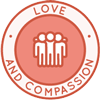
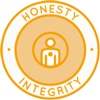
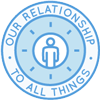
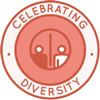
SHARE
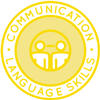
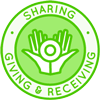
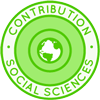
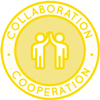
PLAY
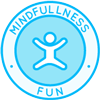
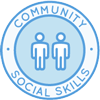
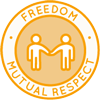
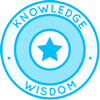
OPEN SOURCE TEACHING METHODOLOGY SUMMARIES
Montessori | Waldorf | Orff | Reggio | Multi-Intelligence | Bloom's Taxonomy | Study Tech | I-WE
INDEX OF ALL THE ONE COMMUNITY OPEN SOURCE LESSON PLANS
THE WORLD'S LARGEST ONLINE FREE EDUCATION RESOURCE ARCHIVE
RELATED CONTENT AND OTHER RELATED RESOURCES
We're building this resource section. Click here if you have a suggestion or resource for this page.
WHO WE ARE
MAIN OPEN SOURCE HUBS
EDUCATION COMPONENTS
CURRICULUM OUTLINES
- Core Curriculum
- Collaboration and Cooperation
- Communication and Language Skills
- Community, Family, and Social Skills
- Contribution, Global Perspectives, & Social Science
- Diversity, Differences, and Similarities
- Freedom and Celebrating Other Perspectives
- Honesty and Integrity
- Interconnectedness & Our Relationship to All Things
- Knowledge and Wisdom
- Love, Connection, and Compassion
- Mindfulness and Fun
- Sharing, Giving, and Receiving
LESSON PLANS
- Lesson Plans How-to
- Beliefs Lesson Plan
- Caring and Kindness Lesson Plan
- Civilization Lesson Plan
- Cognition Lesson Plan
- Communication Lesson Plan
- Consciousness Lesson Plan
- Content and “Our Inner World” Lesson Plan
- Contribution Lesson Plan
- Cooperation and Collaboration Lesson Plan
- Cosmos Lesson Plan
- Courage Lesson Plan
- Creativity Lesson Plan
- Diversity Lesson Plan
- Dreams Lesson Plan
- Emotional States Lesson Plan
- Energy Lesson Plan
- Fall Lesson Plan
- Form and “Our Outer World” Lesson Plan
- Freedom Lesson Plan
- Happiness Lesson Plan
- Harmony Lesson Plan
- Highest Good Lesson Plan
- Honesty and Integrity Lesson Plan
- Human Body Lesson Plan
- Humility Lesson Plan
- Individuality Lesson Plan
- Information Lesson Plan
- Matter & Materials Lesson Plan
- Movement and Development Lesson Plan
- Nature Lesson Plan
- Open Source Lesson Plan
- Opposites Lesson Plan
- Outer Space Lesson Plan
- Personal Growth Lesson Plan
- Planet Earth Lesson Plan
- Quality and Quantity Lesson Plan
- Reality Lesson Plan
- Recreation and Relaxation Lesson Plan
- Relative & Dimensional Space Lesson Plan
- Sharing Lesson Plan
- Signs and Symbols Lesson Plan
- Social Relationships Lesson Plan
- Spring Lesson Plan
- Summer Lesson Plan
- Time Lesson Plan
- Winter Lesson Plan
- Work Lesson Plan
 One Community
One Community



















